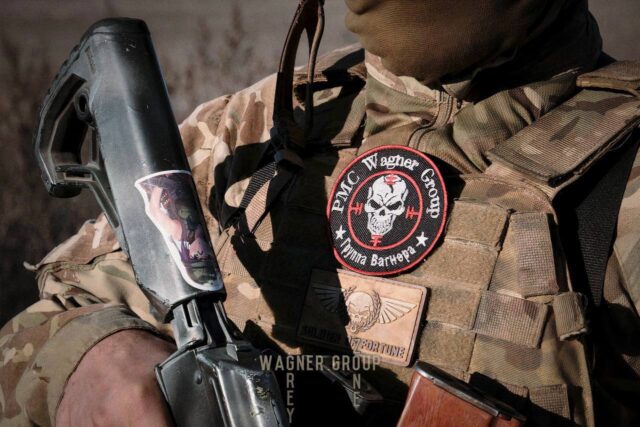Putin’s Power Play: Managing the PMC Wagner Mutiny in the Russian Federation

The recent mutiny led by the Private Military Company (PMC) Wagner in the Russian Federation brought forth a critical moment for President Vladimir Putin. During this crisis, Putin garnered the support of the Russian army, regional governors and heads of states, reaffirming his powerful position in the political and military landscape.
PMC Wagner’s Rebellion: Political and Risk Analysis
Putin’s ability to secure the support of regional governors and heads of states within the Russian Federation during the PMC Wagner rebellion highlighted his enduring influence in the political realms. This crisis served as a testament to the unity and support that Putin commands from key figures in Russia.
In the broader post-Soviet context, Putin’s phone conversations with the presidents of Kazakhstan, Armenia, Belarus, Uzbekistan, and Turkey provided him with a clear understanding of who stood by his side during this tumultuous period.
Among the regional leaders, Turkish President Recep Tayyip Erdogan expressed his support for Putin, while Belarus President Aleksandr Lukashenko worked diplomatically to de-escalate the crisis. However, Kazakh President Kassym-Jomart Tokayev labelled the PMC Wagner’s rebellion as an internal crisis for Russia, opting to avoid direct involvement.
Indeed, Kazakhstan has taken an ambiguous stance since the onset of the conflict in Ukraine. It contrasts with Putin’s support for Tokayev during Kazakhstan’s own internal crisis in January 2022, when the Collective Security Treaty Organization’s military intervention helped stabilise the country.
President Lukashenko of Belarus worked to reduce the internal crisis, which Russian sources labelled as a mutiny. Putin’s management of the situation enabled him to navigate the crisis effectively, steering it away from the brink of a civil war.
Notably, from a military standpoint, the PMC Wagner troops’ open-field travel from Rostov-on-Don to Moscow presented an opportunity for the Russian Armed Forces to target and shell them. Putin chose not to confront the mutiny directly, which may be part of his plan to contain and control the uprising without worsening the situation.
Dmitry Peskov’s statement regarding the possible relocation of Yevgeny Prigozhin to Belarus and integrating non-rebellious PMC Wagner fighters into the Russian Armed Forces highlighted the Kremlin’s work to “sterilise” the problems associated with the PMC.
This strategic move allows Putin to distance himself from Prigozhin while leveraging the contribution and heroism of the remaining fighters in the conflict in Ukraine. By effectively resolving the PMC Wagner issue, Putin further consolidates his power and eliminates potential complications.
In the realm of speculation, rumours circulate within the Russian mainstream and Telegram channels about the possibility of Putin removing Defence Minister Sergei Shoigu. Unconfirmed sources suggest that Alexey Dyumin, the governor of Tula oblast, may be appointed as the new Defence Minister. While the accuracy of these sources remains uncertain, they hint at the potential for strategic reorganisation within the Russian government.
The Western media and governments keenly observed the situation in Russia, with many harbouring hopes for a prolonged internal crisis in the Russian Federation. However, the Kremlin’s swift management of the situation and the avoidance of major conflicts within the country likely left Western expectations unfulfilled.
Conclusion
Putin’s strategic achievement in handling the recent military rebellion underscores his political acumen and crisis management abilities. By securing the support of regional governors and heads of states, and through astute decision-making during the crisis, Putin showed his enduring influence and the unity within the Russian political and military spheres.
His ability to guide the rebellion away from a civil war while avoiding direct military confrontation reveals his calculated approach to managing internal conflicts. The strategic solutions presented to address the PMC Wagner issue and the potential government reshuffling hint at the Russian President’s ongoing efforts to consolidate his power and maintain stability.
The Kremlin’s swift management of the crisis also defied Western expectations, leaving many dissatisfied. After the last days of crisis, it is important to monitor how Russia will completely overcome PMC Wagner’s mutiny and how the Kremlin will continue his military operations in Ukraine.
Author: Giuliano Bifolchi
